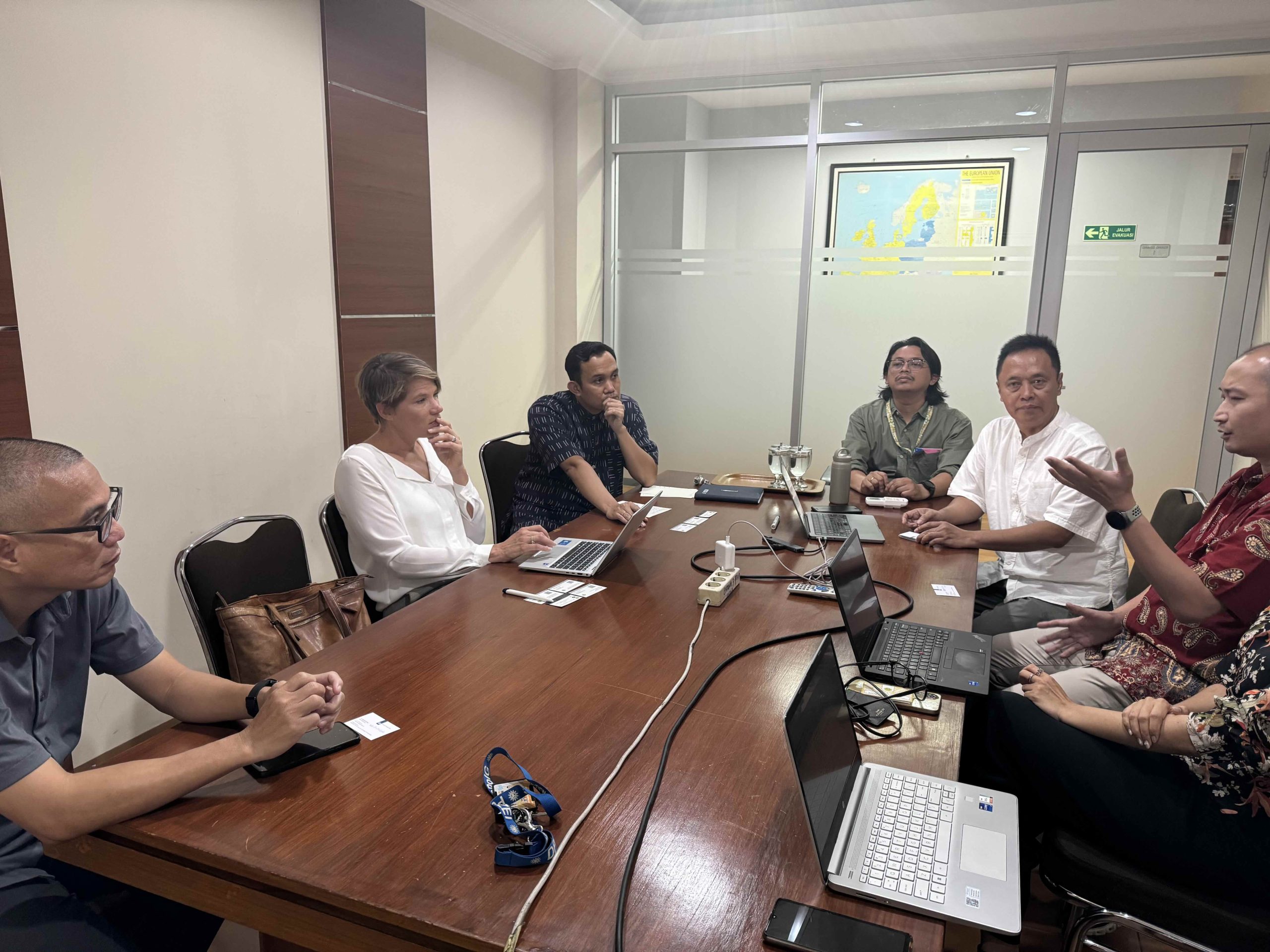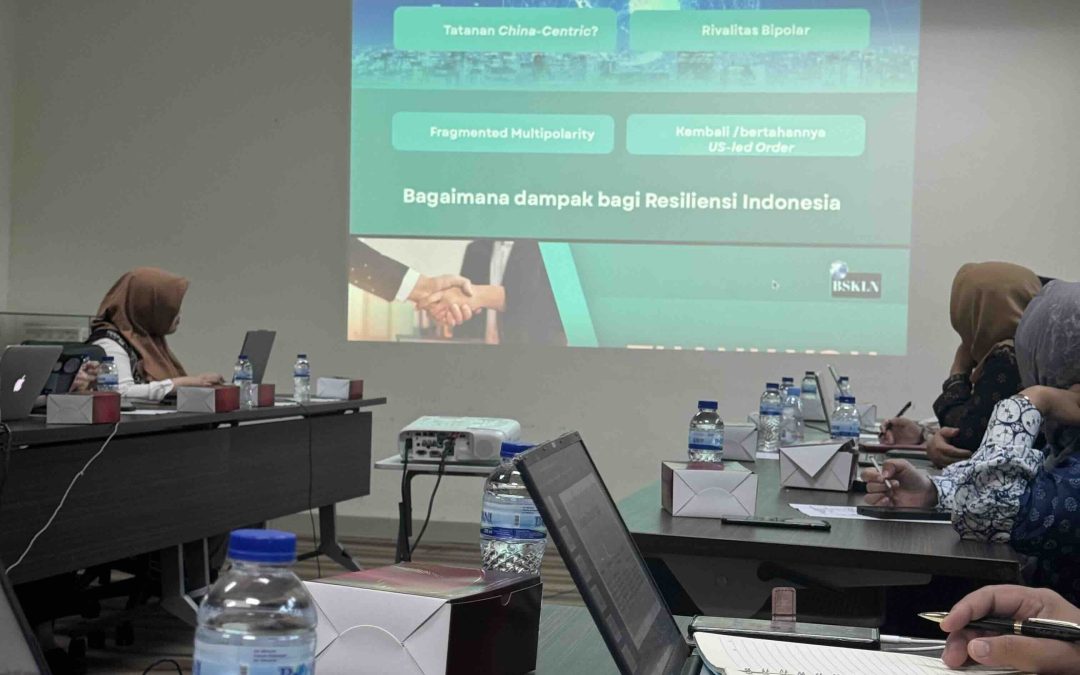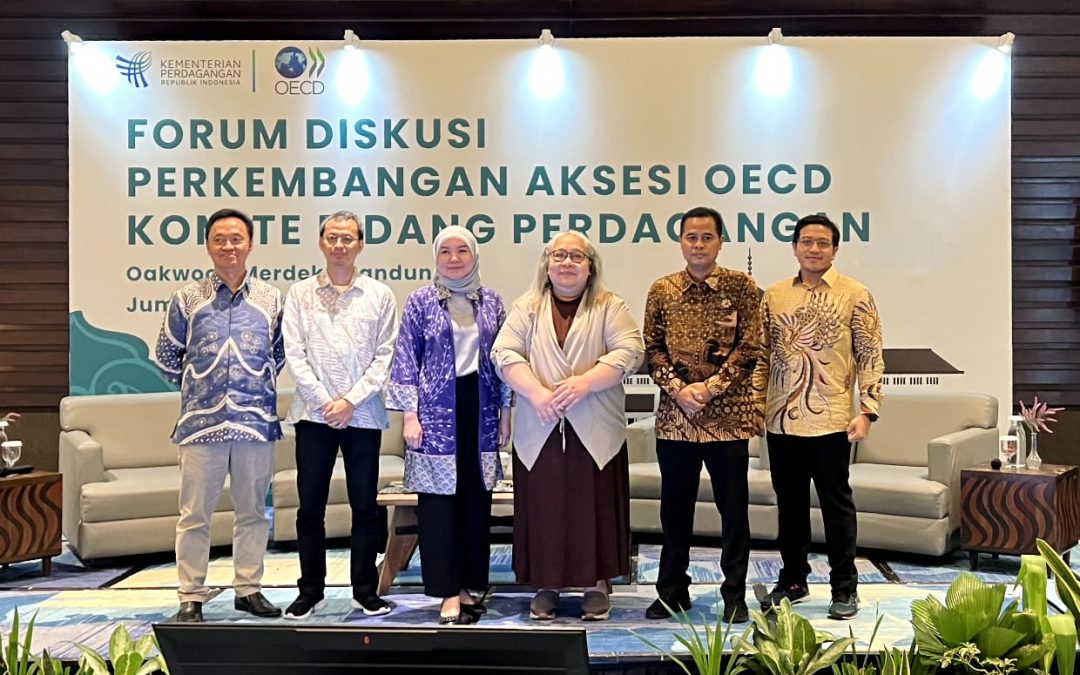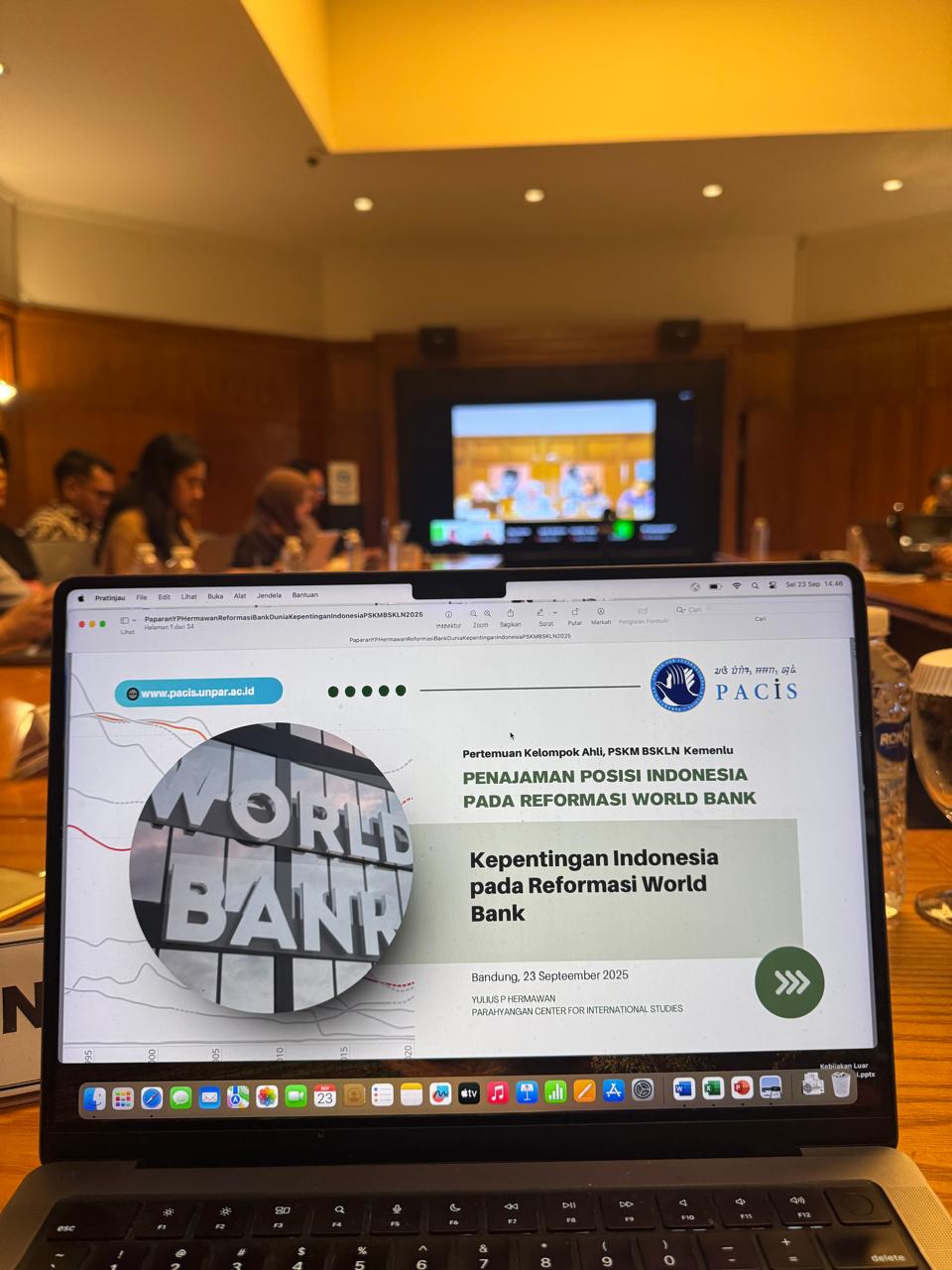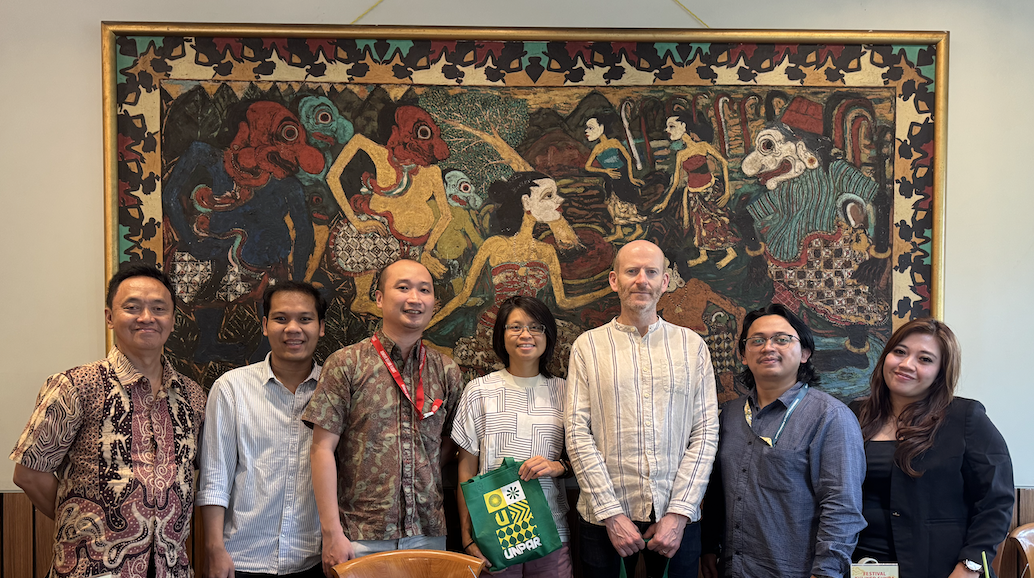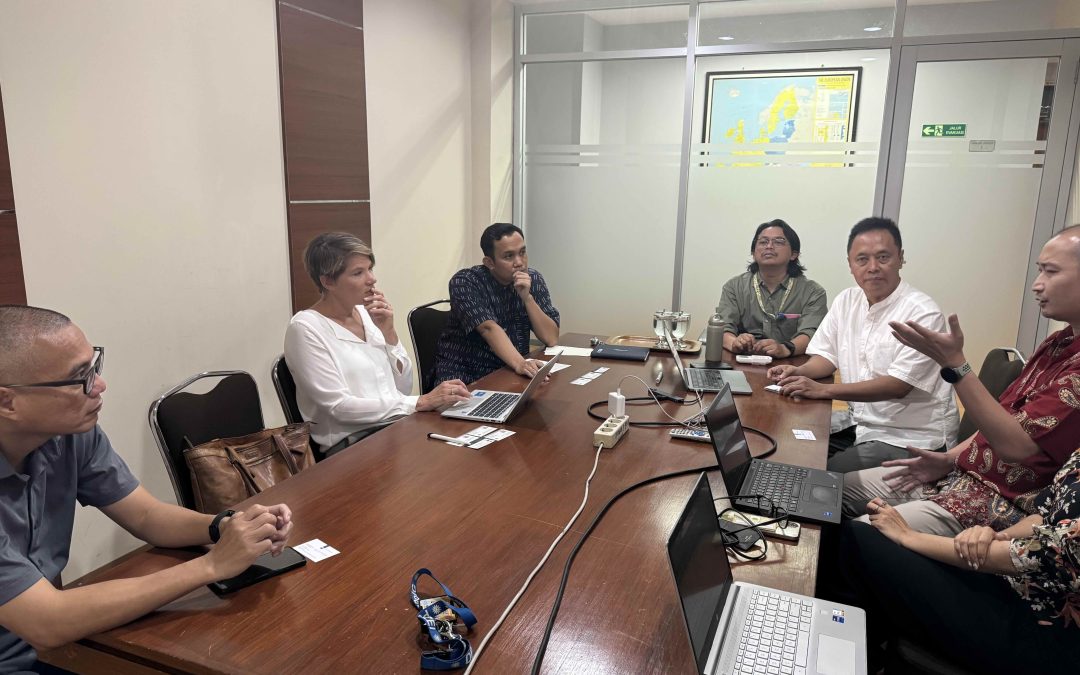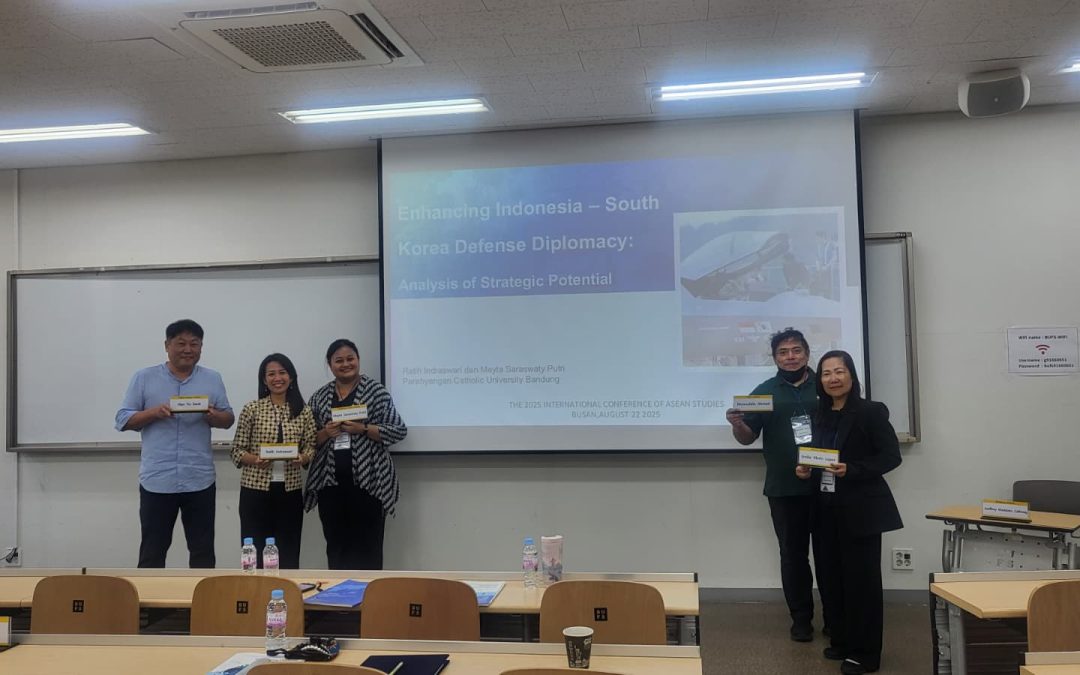On Monday, September 8, 2025, the Parahyangan Center for International Studies (PACIS) held a discussion with the Strategic Advisory Unit of the Dutch Ministry of Foreign Affairs on the theme “Exploring the Opportunity to Develop Minilateral Cooperation between Indonesia, the Netherlands, and Other Like-Minded Countries” in the FISIP Meeting Room at Parahyangan Catholic University, Bandung. This event was intended to share views on the dynamics of regional architecture in Asia while analyzing Indonesia’s potential in developing minilateral cooperation with partner countries.
Amidst the reality of a multipolar world, there is a trend of minilateralism, namely cooperation on specific issues involving a small number of countries based on common interests. PACIS Unpar Chair Yulius Purwadi Hermawan emphasized that Indonesia is actually quite active in various minilateral initiatives. However, as an emerging middle power, Indonesia remains cautious. The cooperation initiatives include a focus on trade, environment, infrastructure, and sustainable development.
Indonesia takes a relatively critical stance toward cooperation initiatives on sensitive high political issues, such as AUKUS. Indonesia’s consideration is that the initiative proposed by Australia, the United Kingdom, and the United States could affect the security and balance of relations between ASEAN countries and influential countries in the region, such as China, which is also an ASEAN dialogue partner.
PACIS researchers also participated in the discussion, namely Aknolt Kristian Pakpahan, Albert Triwibowo, Stanislaus Risadi Apresian, and Ratih Indraswari. They highlighted the ambiguity of Indonesia’s foreign policy direction under President Prabowo. Indonesia’s participation in the 2025 China Victory Day Parade, intensified communication with BRICS, and involvement in a number of joint forums with China, Russia, and North Korea are seen as a power balancing strategy amid the dominance of Western countries.
PACIS researchers emphasize that Indonesia’s choice to participate in minilateral forums is more directed at technical and development issues than high-level political-security constellations. Concrete examples can be seen in Indonesia’s involvement in the Indonesia–Malaysia–Thailand Growth Triangle (IMT-GT), the SIJORI Growth Triangle with Singapore and Malaysia, the Coral Triangle Initiative on Coral Reefs, Fisheries, and Food Security (CTI-CFF), and the Trilateral Cooperative Arrangement (TCA) with Malaysia and the Philippines to maintain maritime security in the Sulu Sea. This tendency is in line with Indonesia’s free and active foreign policy principle, which is to avoid ties with military blocs or alliances, while maintaining flexibility in relations with various major powers.


There are a number of opportunities for minilateral cooperation between Indonesia and the Netherlands with other like-minded countries. Among the issues that could be of interest to both countries are energy transition and the green economy, carbon market development, and development diplomacy. These areas are considered to have the potential to strengthen the Indonesia-Netherlands partnership amid increasingly complex changes in the Asian regional architecture.
Author: Yulius P. Hermawan

